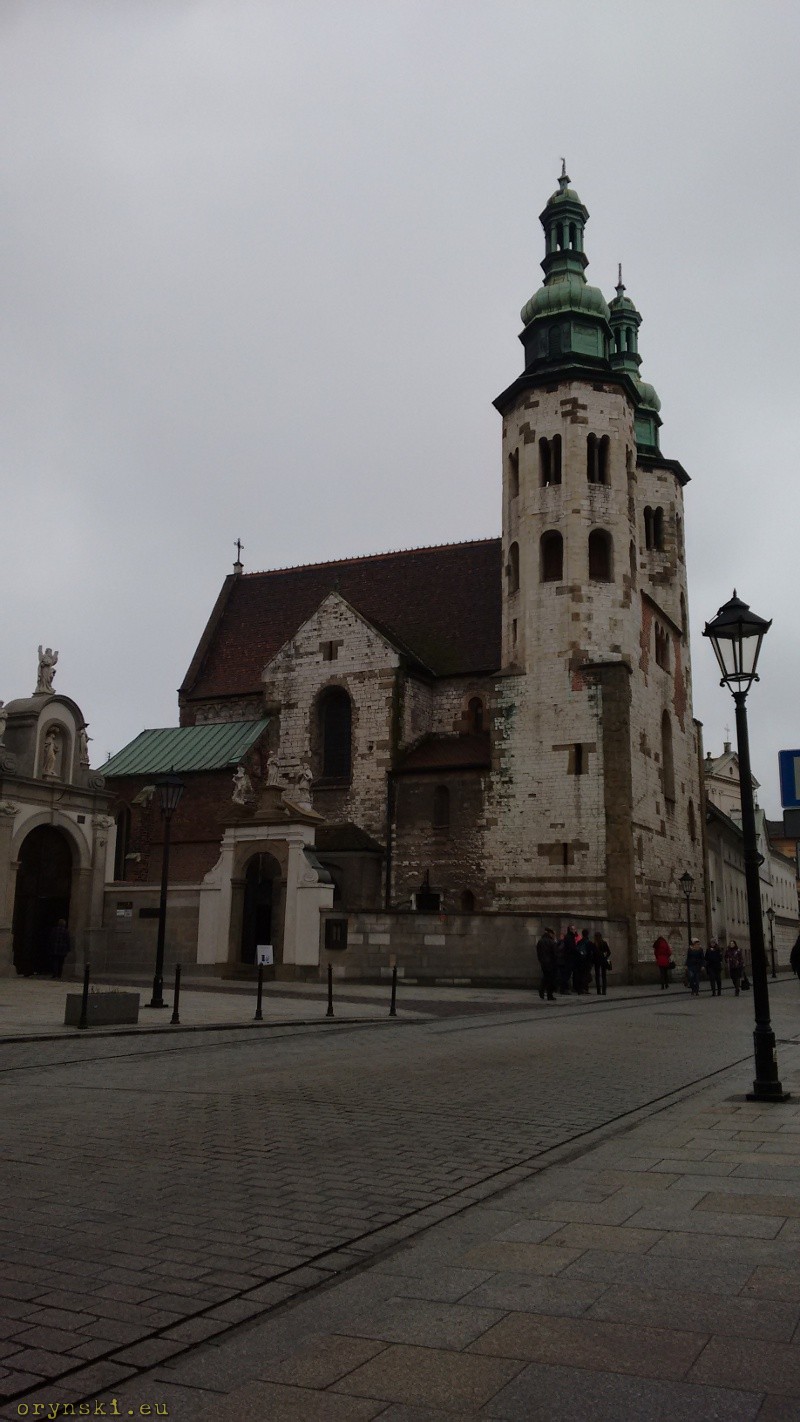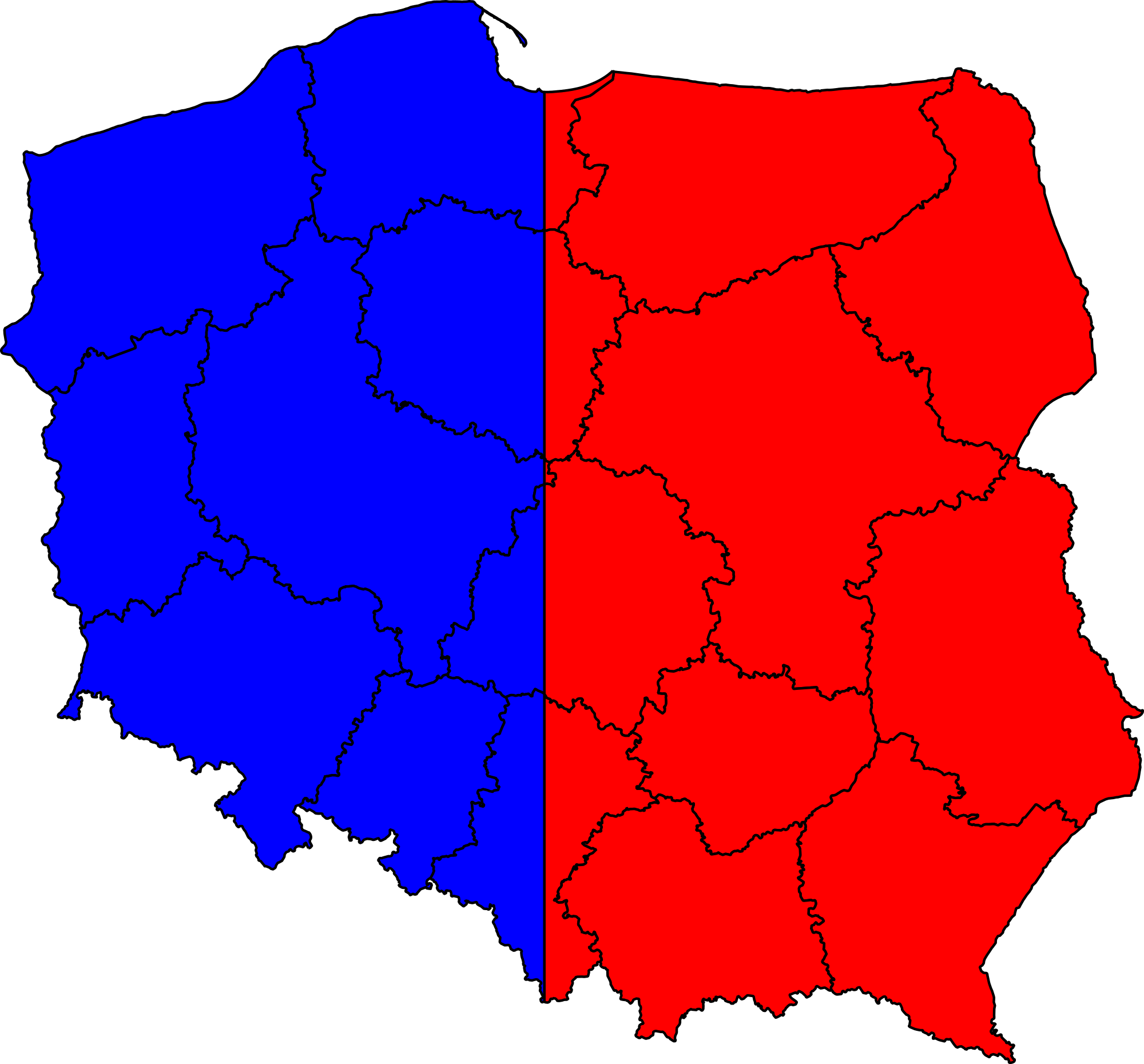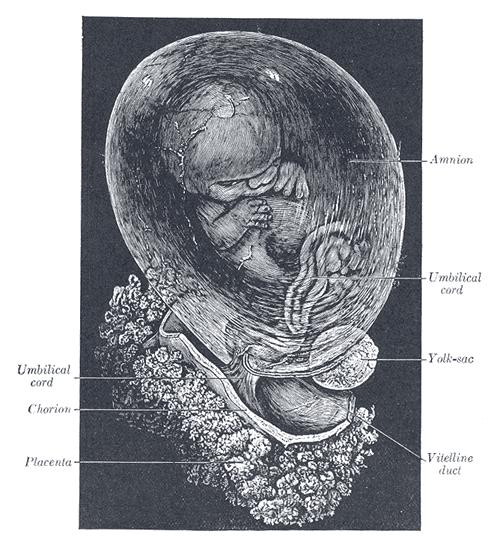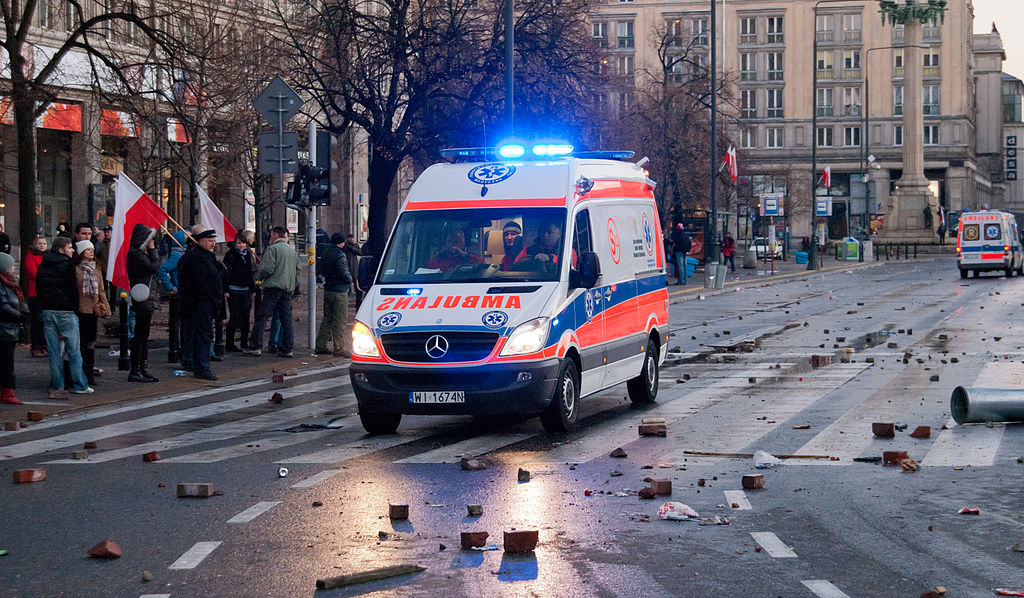Poland abroad is perceived as a deeply Catholic country. Bishops present at every state celebration, consecrating of every new build place – from universities to public toilets… But is that picture true? How it really looks when it comes to everyday people?
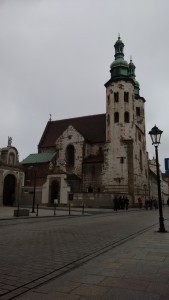 To examine this we have, again, to come back in Polish history. Poland in the past was one of the most open-minded countries in Europe. Warsaw Confederation, an legal act enacted during Royal Elections of 1573 guarantees religious freedom and its considered to be first such document in Europe. Polish king Zygmunt August, clearly expressed that he is not willing to interfere with religion of his subjects, by saying “Nie jestem królem sumień waszych” – “I am not a king of your conscience”. Thank to it, Poland avoided religious wars that were shaking the whole continent at this time. Many persecuted believers of protestant churches, including some notable Czechs, were able to find save refugee there, enriching Polish cultural and scientific life with their work and ideas. This is the very reason why sixteenth century is considered to be a Golden Age of Poland.
To examine this we have, again, to come back in Polish history. Poland in the past was one of the most open-minded countries in Europe. Warsaw Confederation, an legal act enacted during Royal Elections of 1573 guarantees religious freedom and its considered to be first such document in Europe. Polish king Zygmunt August, clearly expressed that he is not willing to interfere with religion of his subjects, by saying “Nie jestem królem sumień waszych” – “I am not a king of your conscience”. Thank to it, Poland avoided religious wars that were shaking the whole continent at this time. Many persecuted believers of protestant churches, including some notable Czechs, were able to find save refugee there, enriching Polish cultural and scientific life with their work and ideas. This is the very reason why sixteenth century is considered to be a Golden Age of Poland.
During the period of Partitions in nineteenth century Priests became a mainstay of patriotic values – Father Robak from Mickiewicz’s Poem “Pan Tadeusz” is a good example of it, when he carries his secret mission to convince Poles to uprise and fight for freedom at the side of Napoleon.
Poland before second World War was still multi-religious country. Stretching far into the East, was inhabited by many Ukrainians, Byelarussians and many other nations, that were members of Orthodox Church or Muslims. Significant protestant community and numerous Jewish Diaspora has also contributed to that multifaith culture, and although antisemitism has not to be omitted, in general people of different faiths were leaving with each other peacefully.
That picture changed in 1945. Thanks to Yalta agreements, Poland has been shifted to the West, leaving many of its former citizens in the east in Soviet Union. At the same time Germans were expelled from newly gained western parts and the Jewish Diaspora was also, for obvious reasons, strongly depleted. As a result, Catholic church, already strong before the war, further strengthened its position.
Soon Poland became a communist country. A regime openly confronted the church, but it only further strengthened its opposition. By imprisoning primate Stefan Wyszyński in the years 1953-1956 the government made him a martyr and a symbol of free Poland that united people. As the regime could not hope for popular support when fighting the Catholic Church, the new leaders that took the power after the Thaw changed their approach to the Church. As a result Catholic Church in communist Poland was maintaining an unique position in the whole Eastern Bloc. Church became the only big organization independent from the state, offering the only alternative to the official line by providing safe haven for free speech, hosting meetings and lectures, helping in distributing underground press, news from the West or Western material help. By 1980s a catholic Church, further strengthened by the election of Polish cardinal Karol Wojtyła as a pope, became a main centre of independent life. Even atheists were a frequent visitors – church became centres of free thoughts, with discussion panels and lectures organized there, catholic paper Tygodnik Powszechny was enjoying an unique status of official catholic journal, Clubs of Catholic Intelligentsia were attracting older people, while student’s ministries (Duszpasterstwa Akademickie) were offering a platforms for activities to youth. Catholic church became almost a synonym to opposition and even atheists were baptizing their children just to show on which side they are on.
Church’s merits to the fall of communism in Poland are undeniable and although the real faith is a different matter, it can be surely said, that in 1980s Poland Catholic Church was playing a leading role in Polish life. But after 1989 things started to change. Suddenly people were able to pick and mix from the whole spectrum of various activities, that made the Church offer much less atractive. The uplifting role also became less significant: suddenly Church stopped to be the only thing to hang to in hope for change for better. The better was just around the corner, everyone was about to become a bilionair and we were about to became a second Japan in a matter of years. People suddenly become full of hope and even if they were struggling with every day life during harsh reforms applied by economist Leszek Balcerowicz, they were still able to enjoy things that just few years ago they were not even dreaming of. The clergy was aware of that the good times are gone and they did everything their could to secure their position, which was not difficult since first generation of the new political class were gaining their experience in opposition, and that would not be possible without church. There was a popular feeling that Poland owes a lot to the church. So the concordat and the introduction of the religion to schools were amongst the first achievements of free Poland. Soon hordes of catechists flooded schools and army of chaplains secured their positions everywhere – from the military, through Olympic committee to scouting. All at the expense of the state.
But despite all this actions and still strongly felt peer pressure, the church attendance statistics were dropping. Introduction of religion lessons into public schools proved to be a fatal mistake: suddenly the afternoon meetings in a catechist rooms in the parishes with the taste of forbidden fruit gave place to “just another class hour”, that was impaired in comparison to the other school subject in that way, that even negative note would not result in failing the school year. That in connection with archaic methods of teaching and clergy’s loss of authority resulted that for many pupils a religion class become a polygon for testing how far they can go with provoking teacher. I was at school at this time and I remember how quick it deteriorated from respecting lessons right to throwing chairs at blackboard and playing volleyball with inflated condom with helpless priest in the middle of the group trying to catch it and gain any respect from youngsters laughing at him.
But religion class can be a good example of another phenomenon: a dualism of the law and everyday life. For example the law states, that parents have to express their will as of if they want their kids to attend religion classes, ethics classes offered as an alternative. By law, if they do not express such will, kids should not be forced to stay at school and for that purpose religion classes should be either at first or last teaching hour. In practice, the latter is not observed at all, and as for the parents consent, the common practice is that it is assumed that child is to attend the religion class, unless parents hand out written opt-out note. The alternative ethics classes are offered only by some insignificant percentage of schools and “atheist kids” are often bullied not only by their classmates but also by clergy and teachers, so many parents just accepts that their kids are attending religious educations to spare them being picked at. But even despite all that odds, attendance at religious classes drops constantly, with a little fluctuations when Roman Giertych, a ministry of education from the far right League of Polish Families has changed the law to allow religion to be taken into consideration when average score is calculated. That could be beneficial, at the same time average score became a significant factor during the university application process and it is usually very easy to get a good note in religion.
(Yours truly had a misfortune to loose a bet in high school that was involving religion classes. While still underage and forced to attend religious classes bymother who refused to sign the “opt-out” form for him, I wanted to make something out of his situation. I made a bet with classmates that my friend and I will get a “fail” note (as mentioned before, unlike with other subject, a “fail” note from religion was completely harmless). The bet was strikingly lost, despite such hard attempts like celebrating black masses in the class and trying to invoke Lucifer according to the instructions found in “The Satanic Bible” by Anton Szandor La Vey. Cathehist outsmarted young Satanists who were reciting the henochian keys to try to “destroy him by the revelation [of the Baal and other daemons]” and gave us “B” for, as he explained “ecumenical interests in another religions”. Incidentally, the bet stake was a crate of Czech beer.)
And so this fiction continues for last 20 years, at the expense of the taxpayer. During the whole education process, a school pupil enjoys over twice as much hours of religious education than physics, chemistry and geography put together. Cathechists also dominated sexual education. Religion lessons cost over 1 150 000 000 Polish złoty, and this is just some of the taxpayers money spend on Catholic church. Apart from that 521 000 000 PLN per year are spend on Catholic Universities, and further 89 millions that are paid every year to church’s bank accounts as a Church Fund contributions.
Church Fund was established by the communists as a compensation for nationalized property. But now it lost it purpose, as the church was reimbursed and compensated for its loses. And in what style! Special commission was created, that was completely outside the constitutional legal system and contained representatives of the state (usually very fond of the church) and representatives of the church (who, as a result, became judges in their own case). The church claims were examined and property was returned, and where it was impossible, the grounds or properties of similar (according to the church) or several times higher (as it was usually soon proved on a free market) value were granted to the church. In many cases grounds or properties were given to the churches without even informing local councils, who owed them. The activity of this commission proved to be exceptional burden for Kraków city council, who learned it hard way, that because the commission is outside the legal system, no appeal procedures are provided…
Many controversial decisions of this commissions are now fought by lawyers and some people, who made a fortune during these proceedings are to be held responsible for their actions. But the great scandal surrounding it drew the public attention to the fact how greedy and shameless the clergy is when it comes to milking the state for their own benefit. And these 1.8 billions of taxpayers money that are pumped into the church are not the end of it. The church is exempt from several taxes, the clergy pays a symbolic fixed rates for National Insurance, many custom exceptions are granted for imported goods… The list can go on and on, and some examples can show how scared the state is to stand up against the church at any front. For example, in the towns where big garrisons of the army were located, the “military parishes” were established. But Polish army was vastly reduced after requirements of Warsaw Pact were no longer needed to be met, and even further when military service was scraped and army became fully proffesional. The army left many towns not leaving the single soldier behind… …except from their chaplains, who still maintain their positions of parsons of the military parishes. There is noone brave enough to tell the church, that their services are no longer needed. A friend of mine, who served on several combat missions abroad, including Iraq and Afganistan told me once, that on his tour they had two chaplains in their camp and a psychologist was visiting them twice per week… And the priest, who was spending most of his time sunbathing was paid much better than the psychologist, who was dealing with post-combat stress and risking her life to travel between the camps.
Politicians of all options, even post communists, were maintaining good relations with the church, who, thanks to it, was able to maintain strong influence on the Polish politics and everyday life. But thanks to all the factors mentioned above the discontent and hostility towards the clergy amongst the people is constantly growing. The official statistics still oscillate around 95% Poles who are Catholic, but the only reason for it is that the statistics are based on the data provided by the church itself, who claim that everyone who was ever baptized is member of the church. That leads to the absurd situation where by simply summing up numbers of people baptized in all churches, well over 120% of Poles turn to be Christians of some kind, and we still have to remember, that some of Poles are Muslim, Buddhist or simple atheists or agnostics. In my view much better source is another data provided by the church in which less then 30% of the nation takes part regularly in the Sunday masses. But we can safely assume that even some of them are unhappy with the scandals surrounding the Catholic church (who, apart of financial scams is also fighting the problems common for the whole word, such as sexual abuse in seminary and covering cases of pedophlia).
Yet the politicians until recently seemed to be unaware of that the Church no longer has a mandate to speak for the “average Pole”. And its presence can be felt to such extent, that according to many Polish residents of UK – by definition, a relgious state – when they go to Poland – according to its constitution a secular country – sometimes they wonder, if by mistake plane has not landed in Iran or some other middle-Eastern religious caliphate. Migrants are not isolated in that feelings and the results of the last elections prove it. A completely new movement, created by Janusz Palikot, outcast from Civic Platform, leading partly gained over 10% of votes in last elections. And altough the conglomerate of the various exotic and “one issue” parties that gatered around Palikot is really wide, it can be safely said that most of his votes are in favour of the anticlerical rethoric of the leaders of this movement, derived from the Polish Rationalist party “Racja”.
Suprisingly good performance of Palikot and his team seem to be an eye-opener for the rest of the political class and a change of attitude towards Catholic Church can be seen. Even such far fetched (for the Polish reality, that is) propositions are emerging as financing the church from voluntary contributions of the taxpayers. The clergy fight this very strongly, as they are really afraid what will happen when their bluff about 95% catholic Poland will be checked. Therefore while arguing with the government about the threshold of the taxes that can be donated to the church, they started an counter-strike at other fronts. Teamed up with the Jarosław Kaczyński followers (see my previous article), they portait Catholic Church as an opressed organization – just like it has place in the 1950s. At the same time they issue still newer and newer demands – such as making religion one of subjects of “matura” high school exams. The anticlerical movement response to it is massive informative action about apostasy procedures, encouraging people to formally leave catholic church. It is very important time for the relations between church and the state, and the outcome of the current events might decide the future picture of that issue for several years.
So altough on the sufrace Poland might look as a Catholic country, the fact is that the real followers are a minority and for most of others going to the church on Christmas is just part of the cultural heritage. In smaller towns and villages the attendance is still bigger, as the peer pressure there is higher, but the shift can be clearly seen – church lost its dominance and now fights to secure as much as possible. And while monumental statues, churches and crosses are build all around the country, it is mostly to show the domination – as in the same time, small, village crosses and shrines that used to witness the faithful gathering around them to pray, are often abandoned or neglected. And the biggest Jesus statue in the world, that was recently built in Świebodzin can be actually a slightly different symbol of Polish catholicism to what its creators intended: a popular joke says “Polish catholicism is like Jesus in Świebodzin: concrete on top, empty inside and trying to dominate the whole neighbourhood”.
Text was published in Czech in Britské Listy

